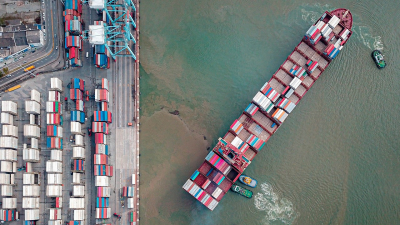Markham’s determined action against unauthorized bins
Markham faced significant resistance while targeting unlicensed donation bins. Former deputy mayor Jack Heath revealed that city staff experienced threats, including an incident where an official had her tires slashed. Nonetheless, Markham pressed forward. “You shouldn’t let people who are making threats, criminal threats, to stop the kinds of initiatives that make for a better city,” Heath said. The city has successfully removed many rogue bins, which were often placed illegally on public property and near shopping plazas. Heath expressed hope that other cities would take similar action to protect their communities.
Evidence of deception and criminal links
Investigations revealed that some bins misled the public. Trackers placed inside donated clothes found that items promised for local charity were instead exported as far as Tunisia. In one case, donations placed in a bin for the Canadian Community Support Foundation, a charity whose status was revoked due to financial misuse, were discovered at a thrift store. Additionally, documents show that turf wars between crime groups over control of the clothing market led to violence, including arson and assaults.
Toronto’s licensing in questionable hands
Records obtained by freedom of information requests show that nearly 20% of Toronto bin licenses were issued to individuals with criminal histories. Among them was Giuseppe Siggia, convicted of drug trafficking and conspiracy, and later charged with damaging a competitor’s property. Siggia stated, “No, I’m not involved in the bin business for years and years.” However, he reacted strongly when asked about family names on City of Toronto licenses. “I don’t know why you keep goddamn insisting I’m still in the business. … listen, I don’t want to talk to you. Call the police and do what the f*** you want to. You have a good day,” he said, then hung up. Kate Bahnen of Charity Intelligence commented, “I don’t know how the City of Toronto has permitted this without doing its due diligence”.
Steps toward reform and Markham’s positive example
Toronto Councillor Anthony Perruzza expressed interest in reviewing the city’s licensing process to ensure ethical standards are met. “I wasn’t aware that we are granting actual licenses to people that are in a for-profit activity and allowing people to sort of, you know, pretend to be a charity and, you know, to be charitable in some way. And if that’s what we’re doing, we should review that,” he said. Markham continues to lead by example, having removed nearly 200 unauthorized bins in the past five years. “The most important [thing] is to go ahead and do it. You can do it,” Heath encouraged other cities.
Markham’s success demonstrates that consistent action can effectively address unauthorized bins, fostering safer communities and ensuring that public donations benefit their intended recipients.
Source: CTV News


 Are you thinking about investing in real estate in Albania? Looking for a safe and profitable opportunity? Balfin Real Estate
Are you thinking about investing in real estate in Albania? Looking for a safe and profitable opportunity? Balfin Real Estate The issue of tariffs has gained significant attention in Canada following months of warnings from U.S. President Donald Trump. Tariffs
The issue of tariffs has gained significant attention in Canada following months of warnings from U.S. President Donald Trump. Tariffs The Canadian government has taken decisive action following new U.S. tariffs. Prime Minister Justin Trudeau announced immediate countermeasures after President
The Canadian government has taken decisive action following new U.S. tariffs. Prime Minister Justin Trudeau announced immediate countermeasures after President

